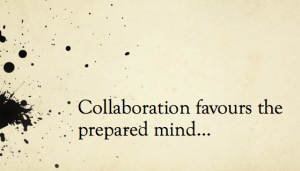The core business of a School Principal is to maximise the positive effect on student learning outcomes. To this end, the effective use of school resources – human, physical and technological – must combine to optimise the opportunities for students to engage and learn. Within this framework, the utilisation of the Teacher Librarian is key to the knowledge economy of the school.
 For a Teacher Librarian(TL) in a NSW DEC High School, both Head Teacher and Principal support are crucial to the efficient execution of the TL role. A supportive Principal will incorporate the Teacher Librarian’s participation in the School Plan; raise the profile and importance of the role of the TL and the library within the school; and model, support and enable collaboration between the TL and classroom teachers (Oberg, 2006). Without the support of the Senior School Executive, the library will be relegated to under-funded and ineffectual and have little impact on the learning outcomes of the school community.
For a Teacher Librarian(TL) in a NSW DEC High School, both Head Teacher and Principal support are crucial to the efficient execution of the TL role. A supportive Principal will incorporate the Teacher Librarian’s participation in the School Plan; raise the profile and importance of the role of the TL and the library within the school; and model, support and enable collaboration between the TL and classroom teachers (Oberg, 2006). Without the support of the Senior School Executive, the library will be relegated to under-funded and ineffectual and have little impact on the learning outcomes of the school community.
This support from the Principal is manifested in a number of ways. It is important to recognise that the physical isolation of the library can be the Teacher Librarian’s biggest hurdle to overcome in terms of being a vital participant in the school’s learning community (Lamb, 2011, p14). Lamb (2011) posits that such isolation can lead to “occupational invisibility” for the Teacher Librarian, and goes on to suggest that supportive principals will provide an outline of their expectations for library use and the classroom teachers’ participation in the library program (p. 14). TL’s have a vast arsenal of ICT tools that can be utilised to overcome these issues of isolation and build bridges to empower other teachers to utilise collaboration mechanisms. Supportive principals also communicate an understanding of the value of the library program and make information literacy an agenda item in school planning.
Support from the Principal becomes evident when they create the “context and structures” that enable the Classroom Teacher and the Teacher Librarian to work collaboratively, allowing some opportunities for flexible scheduling which ensures the library program is integrated into planning and evaluation structures. A supportive principal will also encourage the TL’s personal and professional development (Oberg, 2006, pp. 8 & 15).
An appropriate role for the TL in curriculum planning and development includes being a facilitator in ICT, educating staff on new technologies and programs, and resourcing the curriculum. Teacher librarians should collaborate with classroom teachers “to combine knowledge of the curriculum, knowledge of individual learners’ needs and competencies and knowledge of information sources, resources and technologies” (ASLA, 2009). Without the support of the principal of your school, none of this is possible.
Mattesich et al (2001) write that the arrangement between the Principal and the TL should “include(s) a commitment to mutual relationships and goals; a jointly developed structure and shared responsibility; mutual authority and accountability for success; and sharing of resources and rewards” (in Haycock, 2007). This is not going to be achieved quickly and easily, and requires effort from both the Principal and the Teacher Librarian to establish and maintain common goals for student learning outcomes in their school.
Lastly, Bush (2003) adds that professional satisfaction derives from collaboration with colleagues. This desire to practice a collaborative approach and insert the TL role as a support mechanism for classroom teachers, has the added benefit of developing the collaborative skill set of all involved… including the Principal.
References:
Bush, G. (2003). Do your collaboration homework. Teacher Librarian, 31(1), 15-18.
Haycock, K. (2007) Collaboration: Critical success factors for student learning. School Libraries Worldwide, Vol. 13, No. 1, p.26
Lamb, A. (2011). Bursting with Potential: Mixing a Media Specialist’s Palette. TechTrends Vol 55: 4.
Oberg, D. (2006) Developing the respect and support of school administrators. Teacher Librarian, 33(3), 13-18.
